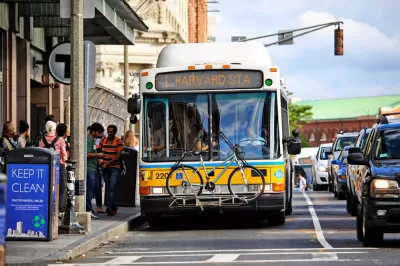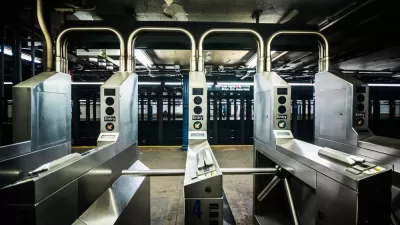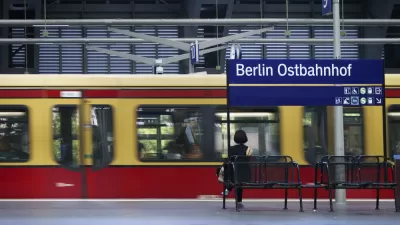Transportation access is one of the biggest factors in keeping people out of homelessness. Cities can help with discounted fares and last-mile connections.

A piece in CALmatters explores the opportunity for California cities to provide transportation assistance as a preventative measure to fight homelessness and poverty.
Research has shown that transportation access is the single biggest factor in helping people avoid homelessness; it's critical to holding down a job, getting to school, keeping service appointments, and many more aspects of daily life.
Yet transportation is also unaffordable to many people struggling with poverty, especially since many cities don't offer subsidies for lower-income transit riders. Seattle's transit programs, however, are praised by advocates as models for California cities: King County launched low-income discounted fares in 2015 and distributes free passes through homeless service organizations, and the city of Seattle recently made passes free for high school students.
But even free transit is no good if it doesn't get you where you need to go. A study in San Diego found that 30 times as many jobs were accessible by car than by public transit—but that the situation could be improved by improving connections to transit stations.
FULL STORY: How a transportation safety net could keep more people off the streets

Alabama: Trump Terminates Settlements for Black Communities Harmed By Raw Sewage
Trump deemed the landmark civil rights agreement “illegal DEI and environmental justice policy.”

Planetizen Federal Action Tracker
A weekly monitor of how Trump’s orders and actions are impacting planners and planning in America.

The 120 Year Old Tiny Home Villages That Sheltered San Francisco’s Earthquake Refugees
More than a century ago, San Francisco mobilized to house thousands of residents displaced by the 1906 earthquake. Could their strategy offer a model for the present?

LA’s Tree Emergency Goes Beyond Vandalism
After a vandal destroyed dozens of downtown LA trees, Mayor Karen Bass vowed to replace them. Days later, she slashed the city’s tree budget.

Sacramento Leads Nation With Bus-Mounted Bike Lane Enforcement Cameras
The city is the first to use its bus-mounted traffic enforcement system to cite drivers who park or drive in bike lanes.

Seattle Voters Approve Social Housing Referendum
Voters approved a corporate tax to fund the city’s housing authority despite an opposition campaign funded by Amazon and Microsoft.
Urban Design for Planners 1: Software Tools
This six-course series explores essential urban design concepts using open source software and equips planners with the tools they need to participate fully in the urban design process.
Planning for Universal Design
Learn the tools for implementing Universal Design in planning regulations.
Ada County Highway District
Clanton & Associates, Inc.
Jessamine County Fiscal Court
Institute for Housing and Urban Development Studies (IHS)
City of Grandview
Harvard GSD Executive Education
Toledo-Lucas County Plan Commissions
Salt Lake City
NYU Wagner Graduate School of Public Service





























